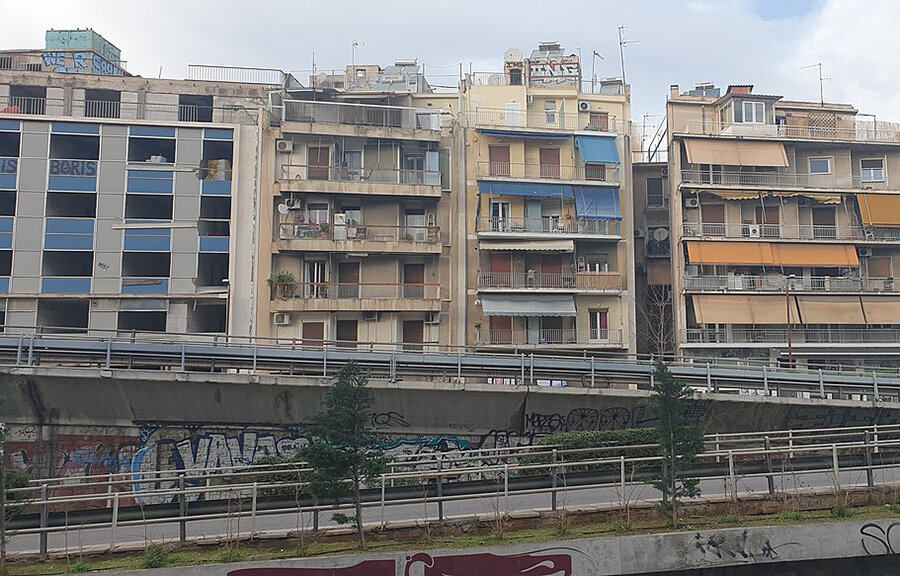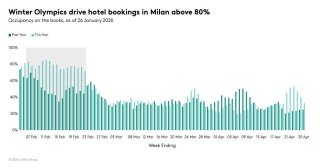Real Estate / Вusiness / Investments / Analytics / Tourism & hospitality / News / Greece / Real Estate Greece / Tourism Greece 30.01.2025
Short-Term Rental Restrictions Take Effect in Popular Athens Districts

In January 2025, new restrictions on short-term rentals came into force in several central Athens neighborhoods, including Kolonaki, Koukaki, Pangrati, and Exarchia, reports the Times. Violators face fines of at least €20,000.
By December 31, 2024, homeowners were required to declare new rental properties in three Athens districts where owners are no longer allowed to register properties for short-term leases. The restrictions apply to the following areas:
- 1st Municipal District: Historic Center, Koukaki, Plaka, Exarchia
- 2nd Municipal District: Pangrati, Zappeio, Metz, Neos Kosmos
- 3rd Municipal District: Thiseio, Petralona, Metaxourgeio, Votanikos
Rising Short-Term Rentals in Athens
As of summer 2024, over 12,500 properties in central Athens were listed for short-term rentals. In the district covering Acropolis, Plaka, and Monastiraki, there were 2,440 units, while Koukaki had 1,164, Neos Kosmos had 992, Exarchia had 918, and Agios Konstantinos had 807.
According to AirDNA, an American firm tracking rental data, nearly 18,000 apartments in Athens were available on Airbnb and Vrbo at the time.
The Greek news portal Ekathimerini reported that in 2024, Greece saw a significant surge in demand for short-term rentals. By August, the number of listings had surpassed 230,000 nationwide, marking an unprecedented milestone. The available capacity of these rental properties grew to 1.022 million, exceeding the 887,740 hotel beds across the country.
This surge was driven by strong tourist demand and a growing preference for flexible accommodation options.
By November 2024, short-term rental listings in Greece totaled 205,000 units, which was 20,000 more than in November 2023.
Government Measures to Regulate the Market
To level the playing field between short-term rental hosts and hotels, the Greek government introduced stricter regulations, including:
- Professional licensing for those managing more than two properties;
- Mandatory health and safety standards;
- Short-term rentals must comply with primary residential use standards;
- Apartments must provide essential amenities, similar to hotels, including proper ventilation and liability insurance.
Future Restrictions and Tax Incentives
Authorities plan to extend short-term rental bans to additional high-demand areas and eventually to regions with lower demand. The goal is to increase housing availability and balance the rental market.
The Greek government is also offering a three-year tax incentive to encourage property owners to convert short-term rentals into long-term leases.
Additionally, Prime Minister Kyriakos Mitsotakis has proposed a potential increase in taxes for short-term rental properties.
Industry Uncertainty and Economic Implications
While these measures aim to control rental price inflation and protect local communities, industry experts remain skeptical about their long-term impact. The effectiveness of the new regulations will become clearer after Q1 2025, when data will indicate whether the restrictions have curbed price hikes while maintaining Greece’s attractiveness as a global tourist destination.
At the same time, foreign investment in Greek real estate is declining. In the first nine months of 2024, foreign investments in Greek real estate totaled €3.1 billion, a 15% decrease from €3.66 billion in 2023. In 2022, the figure stood at €6.43 billion.
Analysts warn that further declines are possible, particularly due to new rental regulations, the tightening of Greece’s "Golden Visa" program, and stricter building codes, which may discourage international investors.











